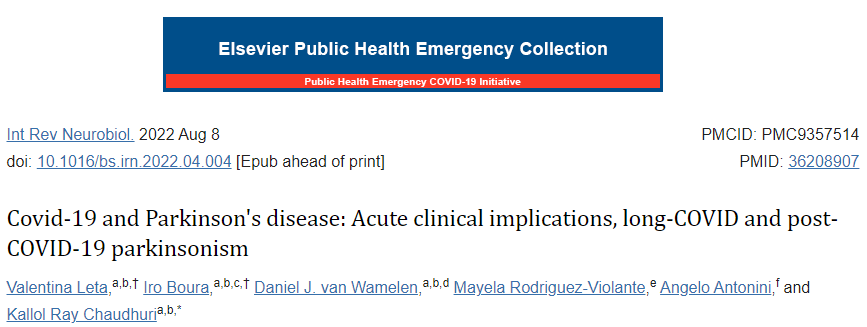The Coronavirus Disease 2019 (Covid-19), caused by the Severe Acute Respiratory Syndrome Coronavirus-2 (SARS-CoV-2), has led to unprecedented challenges for the delivery of healthcare and has had a clear impact on people with chronic neurological conditions such as Parkinson’s disease (PD). Acute worsening of motor and non-motor symptoms and long-term sequalae have been described during and after SARS-CoV-2 infections in people with Parkinson’s (PwP), which are likely to be multifactorial in their origin. On the one hand, it is likely that worsening of symptoms has been related to the viral infection itself, whereas social restrictions imposed over the course of the Covid-19 pandemic might also have had such an effect. Twenty cases of post-Covid-19 para-infectious or post-infectious parkinsonism have been described so far where a variety of pathophysiological mechanisms seem to be involved; however, a Covid-19-induced wave of post-viral parkinsonism seems rather unlikely at the moment. Here, we describe the interaction between SARS-CoV-2 and PD in the short- and long-term and summarize the clinical features of post-Covid-19 cases of parkinsonism observed so far.


